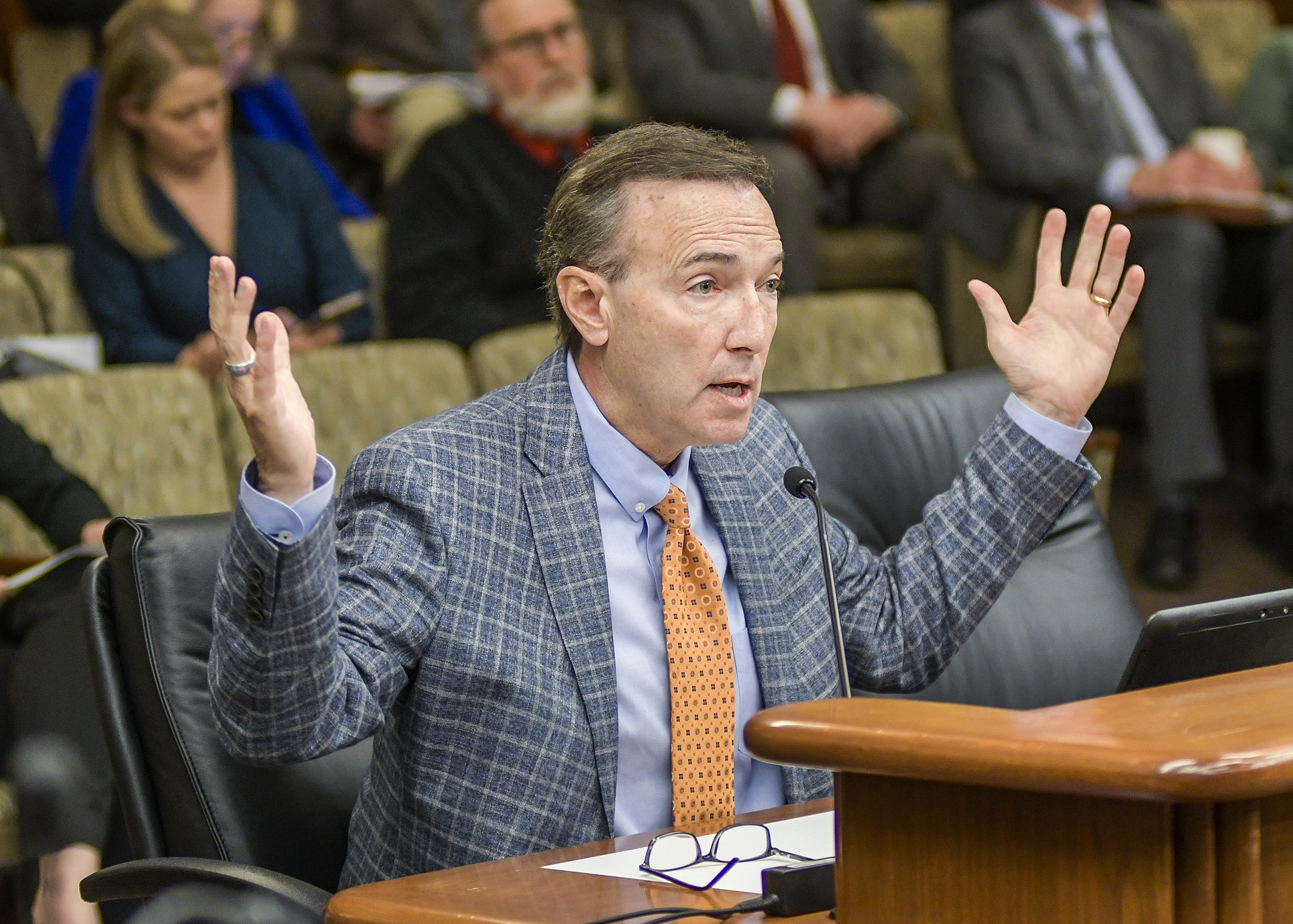Spread funding around or give a lot to a couple of projects? Energy appropriations debate begins

Instead of a walkout, they had a walkthrough.
After Friday’s stormy first meeting -- which included the Senate’s committee co-chair leading staff out of the hearing room in protest -- the conference committee dealing with the omnibus jobs and economic development, energy and climate, and telecommunications policy and finance bill met Monday to review the differences related to energy.
The upshot of the breakdown was that the Senate bill would allocate $17.1 million more from the Renewable Development Account in the 2020-21 biennium, but the House version would fund more projects. Similarly, the House bill would use $1.9 million from the General Fund for seven renewable energy projects that aren’t addressed in the Senate bill.
[MORE: View the spreadsheet]
The Renewable Development Account was set up by Xcel Energy as the result of a 1994 law concerning dry cask storage for waste produced by the state’s nuclear power plants. The more waste Xcel stores, the more money it puts into the account, which funds grants for renewable energy projects. As the fund has evolved, the Legislature and governor have become increasingly involved in earmarking the appropriations, with the Department of Commerce responsible for their oversight.
Under the House bill, that account would accrue an additional $13 million in 2020-21 by modifying withholding for the Solar Rewards program, while the Senate bill would add $4 million from Xcel related to a cap on nuclear waste storage.
As for expenditures from the Renewable Development Account, the Senate proposes the bulk go to a compensation account for those affected by the closing of a biomass plant in Benson ($40 million) and assisting the Prairie Island Indian Community in becoming a net zero energy community ($27.5 million).
The House RDA appropriations are far more diversified, going to 13 projects. The largest outlay would be for Solar on Schools grants, which would receive $16 million in the 2020-21 biennium to help the state’s public schools transition to solar energy.
The House bill would also allocate $10.4 million for electric vehicle purchase rebates; $6 million each to the University of Minnesota and Minnesota State to aid their transition to renewable energy sources; $5 million for the Prairie Island project; $3.5 million for solar devices in state parks; and $2.5 million for electric vehicle charging stations. Of those, only Solar on Schools is mentioned in the Senate bill, receiving $2 million in the next biennium.
The House bill also has $13 million in appropriations from the RDA for the current fiscal year: $8 million to the Metropolitan Council for the purchase of electric buses and $5 million to be transferred to Xcel for its Solar Rewards program.
As for General Fund appropriations, the House version would call for $2.1 million more to the Department of Commerce for funds related to energy resources. The increase would go to seven programs, including $600,000 for Solar on Schools grants, $547,000 for a University of Minnesota micro-grids climate study, and $525,000 in litigation expenses for a North Dakota case.
House members were hoping to discuss energy and climate policy differences between the two bills on Monday, but committee co-chair Sen. Eric Pratt (R-Prior Lake) successfully moved for adjournment, saying that he preferred conferees go through the entire omnibus bill (including jobs, economic development and telecommunications sections) before debating differences.
The committee is scheduled to meet again at 12:30 p.m. Tuesday.
Related Articles
Search Session Daily
Advanced Search OptionsPriority Dailies
Ways and Means Committee OKs proposed $512 million supplemental budget on party-line vote
By Mike Cook Meeting more needs or fiscal irresponsibility is one way to sum up the differences among the two parties on a supplemental spending package a year after a $72 billion state budg...
Meeting more needs or fiscal irresponsibility is one way to sum up the differences among the two parties on a supplemental spending package a year after a $72 billion state budg...
Minnesota’s projected budget surplus balloons to $3.7 billion, but fiscal pressure still looms
By Rob Hubbard Just as Minnesota has experienced a warmer winter than usual, so has the state’s budget outlook warmed over the past few months.
On Thursday, Minnesota Management and Budget...
Just as Minnesota has experienced a warmer winter than usual, so has the state’s budget outlook warmed over the past few months.
On Thursday, Minnesota Management and Budget...